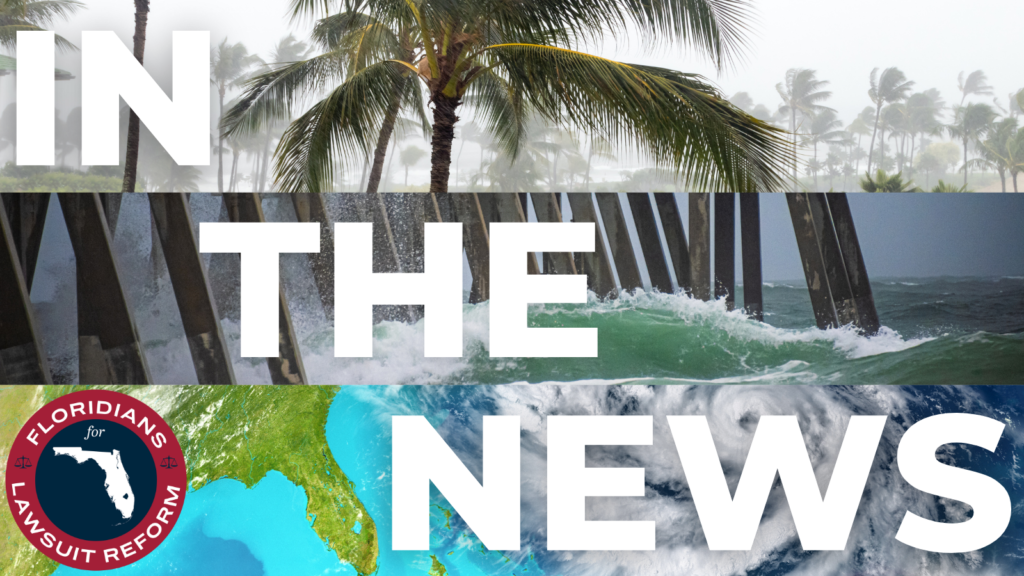by Kane Kaiman

What’s gone up is not coming down.
High reconstruction costs, tropical storms, exaggerated claims and frivolous lawsuits — these are some of the factors driving up the price of property insurance in Florida, Clegg Insurance Advisors executive vice president Lisa Brakefield said Sept. 23.
“Unless some legislation gets passed to address these issues, I think rates could continue to climb 20%-25% a year,” she said.
Brakefield, who works at Clegg’s island office, 101 S. Bay Blvd., Anna Maria, has seen renewal rates rise for the past five years but, she said, this year’s increase was slightly steeper.
Most customers are aware insurance costs are on the rise and policies are pricier on the island, where reconstruction costs tend to be higher than on the mainland, she said.
According to Brakefield, the number of people shopping for insurance has swelled.
In addition to renewal price increases, insurance carriers’ “exposure management” strategies are driving people into the market.
Tropical storms, namely Hurricane Irma in 2017 and Hurricane Michael in 2018, have depleted the coffers of some carriers, leading to non-renewals in high-risk areas, such as the island, Brakefield said.
Exposure management strategies also are tied to home construction and, in recent years, some carriers have indicated they would no longer insure buildings with older roofs, AC and electrical systems.
Due to the increasing risk aversion among carriers, Clegg’s selection has diminished about 30%-40% over the past five years.
“We probably have lost five or six carriers that are just not writing in our area,” Brakefield said.
In addition to the price increases, non-renewals and carrier scarcity, some tax watchdogs maintain insurance customers will be dealt another blow by President Joe Biden’s Build Back Better agenda, which they argue will drive insurance prices even higher.
Proposed legislation is working its way through Congress that would raise the corporate tax rate from 21% to 26.5% and the Build Back Better plan calls for the establishment of a global minimum tax rate between 15% and 28% — which would impact the international reinsurers that finance many independent carriers in Florida.
Many large corporate insurers withdrew from the Florida market after the 2004-05 hurricane seasons, leaving independent insurers backed by international financiers to fill the void.
Since the Florida market relies heavily on international dollars, opponents of the Build Back Better agenda have dubbed the international tax rate hike a “hurricane tax.”
Brakefield declined to speculate on the impact of the proposed plan but said the current insurance market has led some of her clients to forego hurricane and flood insurance.
However, only homeowners without mortgages can take on that gamble and the high cost of insurance can be a “deal-breaker” when it comes to purchasing property on the island, she said.
Brakefield suggests prospective homeowners purchase dwellings with “superior construction” — homes constructed with metal roofs and impact glass, for example — to cut down on insurance costs.
Due to the unpredictable weather patterns over the past several years, she advises against gambling on self-insurance.
“I get asked all the time, ‘Did you buy wind or flood?’ Well, I have them both. So I wouldn’t dare pick a peril and test Mother Nature,” she said.
